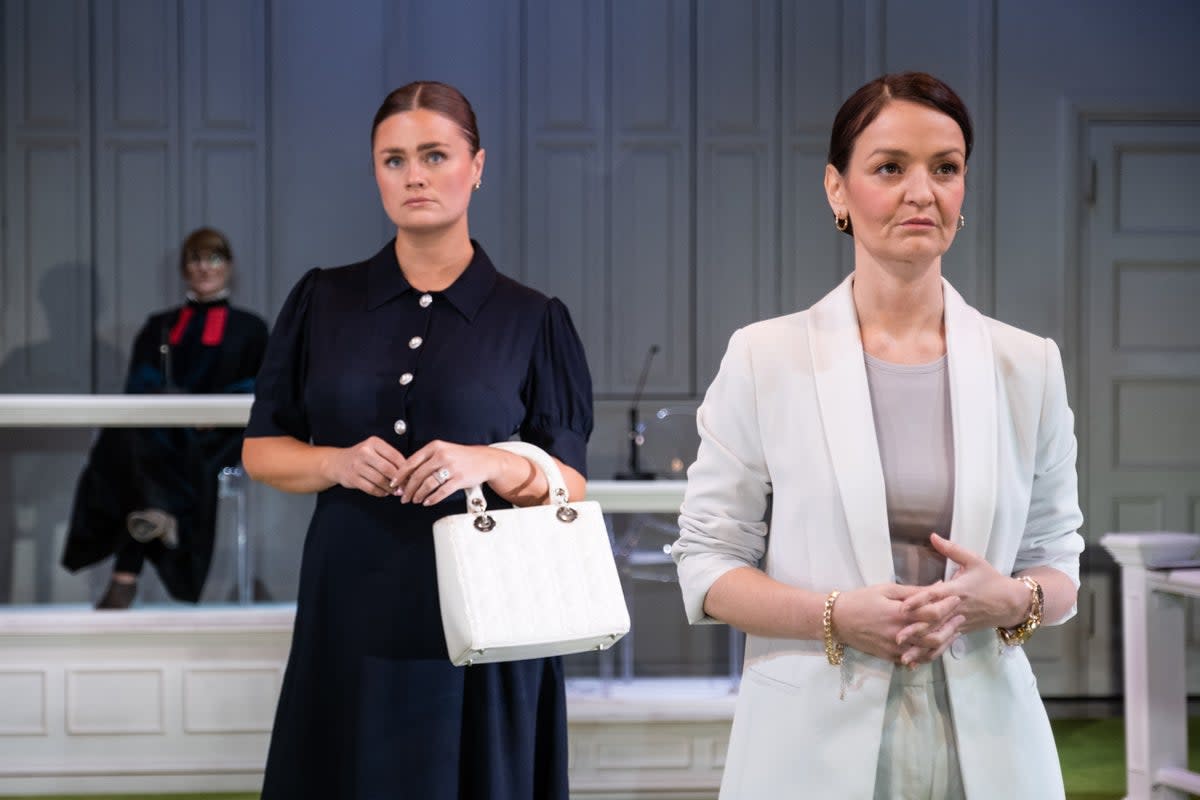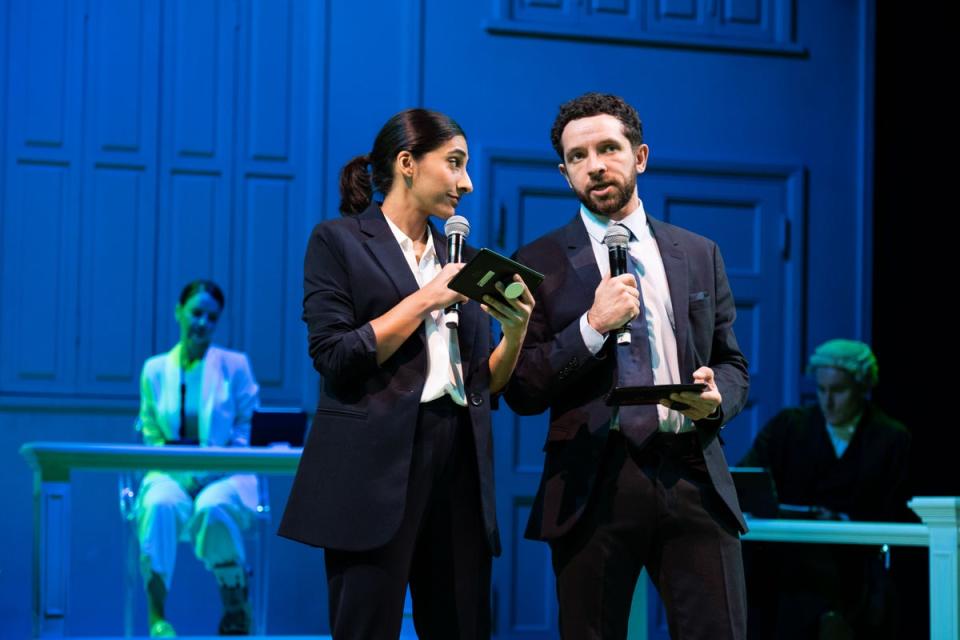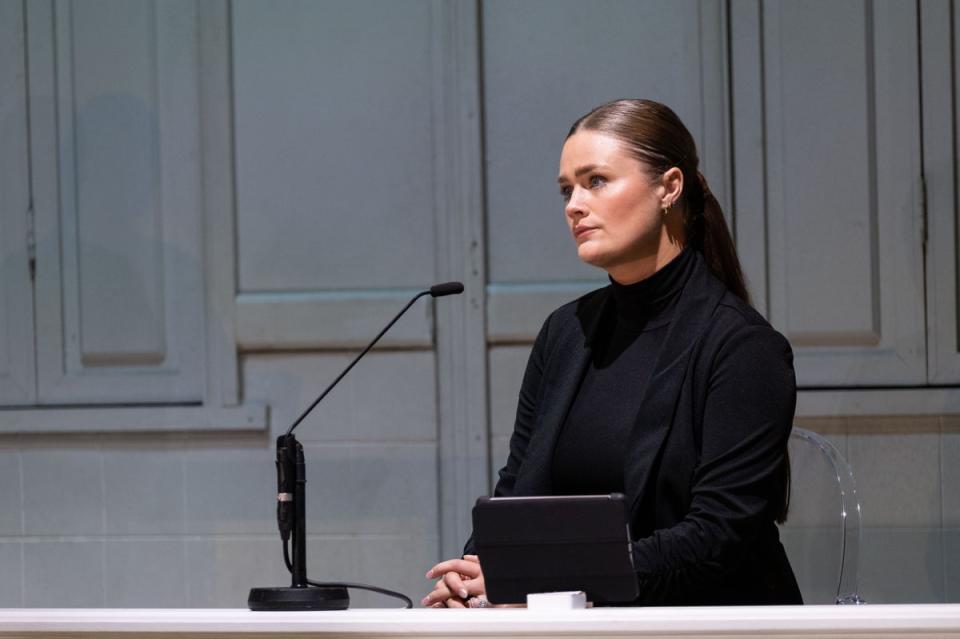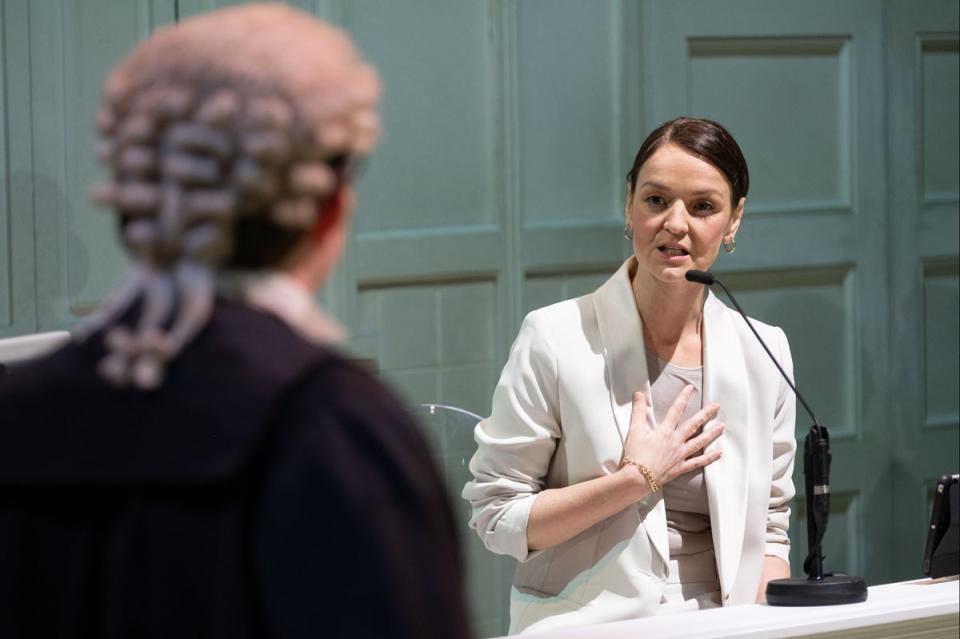Vardy V Rooney: behind the scenes of the ‘inherently theatrical’ Wagatha Christie play

Turn on any television set or radio in the summer of 2022 and chances are that one thing would be dominating the airwaves: Wagatha Christie.
This clash of the WAGs captured the nation’s attention when it exploded into being in 2019 after Coleen Rooney conducted the most celebrated Instagram sting operation of all time.
This year, it became one of the most widely-publicised trials in British history, spawning countless headlines and catchphrases. The New York Times called it “a riveting peek into celebrity culture”. Avid viewers found out how Peter Andre was related to a chipolata, and how phones could accidentally get lost in the North Sea. Now, the whole sensational affair is being made into a play, Vardy V Rooney: The Wagatha Christie Trial, to be performed at Wyndham’s Theatre this month.
As director Lisa Spirling argues, it was only a matter of time before somebody adapted this most explosive of dramas for the stage.
“It gripped the media; it gripped the legal world. We were going, ‘This is inherently theatrical. You have conflicts, and you have big personalities, and you have great oration and drama,’” she says.
“Obviously we now know the outcome of the trial, but it was a genuine whodunnit, with evidence and trying to work it out. And so lots of people were going, ‘someone should put this on stage.’”

Spirling and the creative team did just that – and in record time. Written over a matter of weeks by Liv Hennessy – who has dubbed the episode a “water-cooler moment” for the UK - Vardy V Rooney adapts hundreds of hours of court transcripts into a tight 90-minute runtime.
“It’s kind of like the match highlights,” she says. “It’s got so many iconic moments, but also, I think British courts are quite theatrical. Barristers in particular are such brilliant orators, and they have a real rhythm to their speech.
“I basically could not have asked for better dialogue from anyone, Coleen or Rebecca, it was really like, you just couldn’t write it.”
Originally intended to play for one night only, tickets sold out immediately, prompting the organisers to add another six performances to the run. Perhaps, Spirling concedes, it shouldn’t have been a surprise.
“It was such a landmark case, it has celebrity and a kind of glamour to it, and it has this clash of celebrity pop culture and the British legal system, which has, for better or worse, a reputation of being quite fusty and quite staid, quite formal,” she says.
“And what happens when you combine these two worlds feels really electric.”
Laura Dos Santos, who plays Rooney, agrees. “There’s an immediacy in theatre, and there is something really incredible about a group of people being in a room,” she says. “That moment exists just for that moment, and then it’s gone, as it would have been in the court.”
Almost everybody involved in this play is a die-hard Wagatha fan, including Lucy May Barker, who plays Vardy – she confesses to scheduling her gym classes around the trial, so she could “sit in the changing room afterwards and catch up on everything online”.

However, the team is adamant that the play doesn’t take sides, or poke fun at the women at the heart of the action. One of Spirling’s directions, Dos Santos says, was that “this isn’t Spitting Image. And we’re not trying to do impressions.”
“We’re not trying to mock anyone,” Spirling says, pointing out that all the humour, tragedy and pathos that any viewer could ask for is already resident within the original court transcripts. “Words can speak for themselves.”
In addition to offering viewers a greatest hits mashup of the trial’s key moments, the play seeks to change the way the audience sees Wagatha, shifting the focus to what our fascination with this long-running case says about modern society.
“For me, it’s about giving back a case that absolutely fascinated the public,” Barker says. “To give it back to the public in its true form, what actually happened, what [Rooney and Vardy] actually said, it puts the words back into the mouths of the women rather than through the various ways in which we received it.
“I think that’s important, in a time where women’s words are often silenced and changed.”
Not just changed, but being shared online. After all, it was Coleen Rooney’s Instagram post that kicked off the whole Wagatha Christie case – and the women’s social media messages that dominated the airwaves during the trial.
“It’s very interesting when it comes to how the media is allowed to behave when it comes to private Instagrams and photos,” Hennessy comments. “What I think is so interesting [in Wagatha] is the conflation of the public and private spheres. You're hearing a public witness statement or public testimony. And then you're also hearing private WhatsApp messages being read out. And I think that is so fascinating: who owns what? When we live so much of our private life as public content, who owns it? And media law is still catching up.”

“lt’s the Wild West,” Spirling adds. “There’s so much in there about ownership, control, controlling your narrative, storytelling that feels really pertinent.”
The Wagatha trial was a landmark case in more ways than one. It was one of the biggest libel trials in British history: around 145,000 people tuned into the court’s YouTube livestream to watch the case each day.
However, the team are hoping that their play will help remind the audience that the people it affected are just that – people; most notably the women who were in the eye of this particular storm for more than three years.
Barker sums it up. “I think, hopefully seeing what happened in that courtroom, which is really emotional at times, what both of them go through – I hope that that brings back the human element,” she says. “Perhaps [it will] make people think about the humanity, rather than the celebrity.”
So, I ask – have the real Rooney and Vardy been in touch about the upcoming performances?
Hennessy is coy. “We would prefer not to answer that question,” she says.
No doubt we’ll find out on Instagram in due course, but who’ll be first? Will it be... Rebekah Vardy’s account?
Vardy v Rooney: The Wagatha Christie Trial will be at Wyndham Theatre to Jan 10; wagathaplay.com


